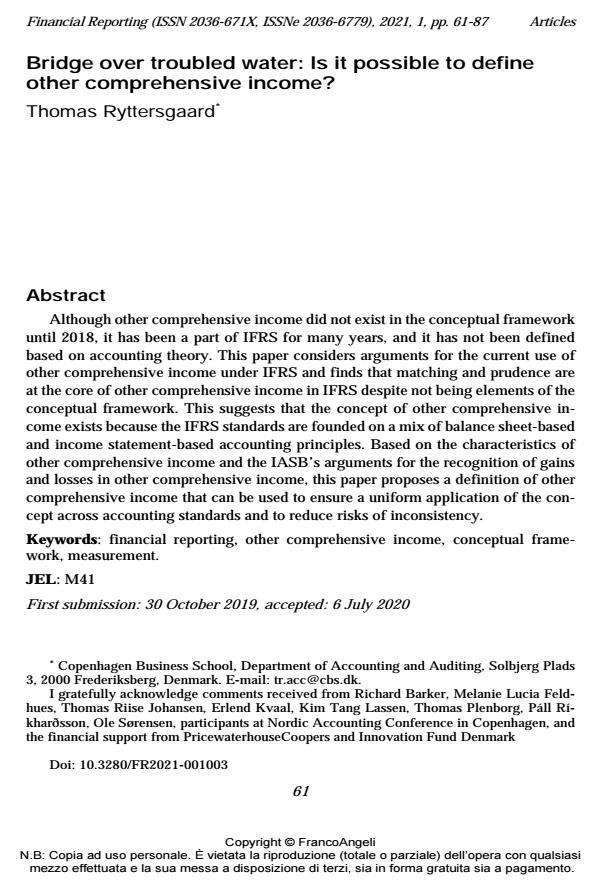Bridge over troubled water: Is it possible to define other comprehensive income?
Journal title FINANCIAL REPORTING
Author/s Thomas Ryttersgaard
Publishing Year 2021 Issue 2021/1
Language English Pages 27 P. 61-87 File size 104 KB
DOI 10.3280/FR2021-001003
DOI is like a bar code for intellectual property: to have more infomation
click here
Below, you can see the article first page
If you want to buy this article in PDF format, you can do it, following the instructions to buy download credits

FrancoAngeli is member of Publishers International Linking Association, Inc (PILA), a not-for-profit association which run the CrossRef service enabling links to and from online scholarly content.
Although other comprehensive income did not exist in the conceptual framework until 2018, it has been a part of IFRS for many years, and it has not been defined based on accounting theory. This paper considers arguments for the current use of other comprehensive income under IFRS and finds that matching and prudence are at the core of other comprehensive income in IFRS despite not being elements of the conceptual framework. This suggests that the concept of other comprehensive income exists because the IFRS standards are founded on a mix of balance sheet-based and income statement-based accounting principles. Based on the characteristics of other comprehensive income and the IASB’s arguments for the recognition of gains and losses in other comprehensive income, this paper proposes a definition of other comprehensive income that can be used to ensure a uniform application of the concept across accounting standards and to reduce risks of inconsistency.
Keywords: Financial reporting, other comprehensive income, conceptual framework, measurement
Jel codes: M41
Thomas Ryttersgaard, Bridge over troubled water: Is it possible to define other comprehensive income? in "FINANCIAL REPORTING" 1/2021, pp 61-87, DOI: 10.3280/FR2021-001003